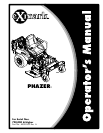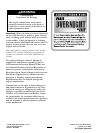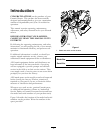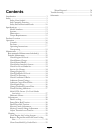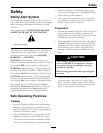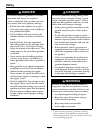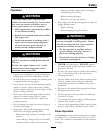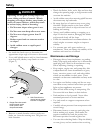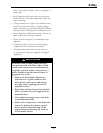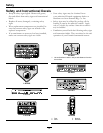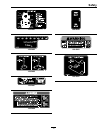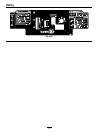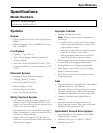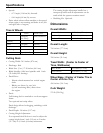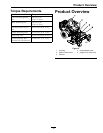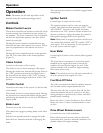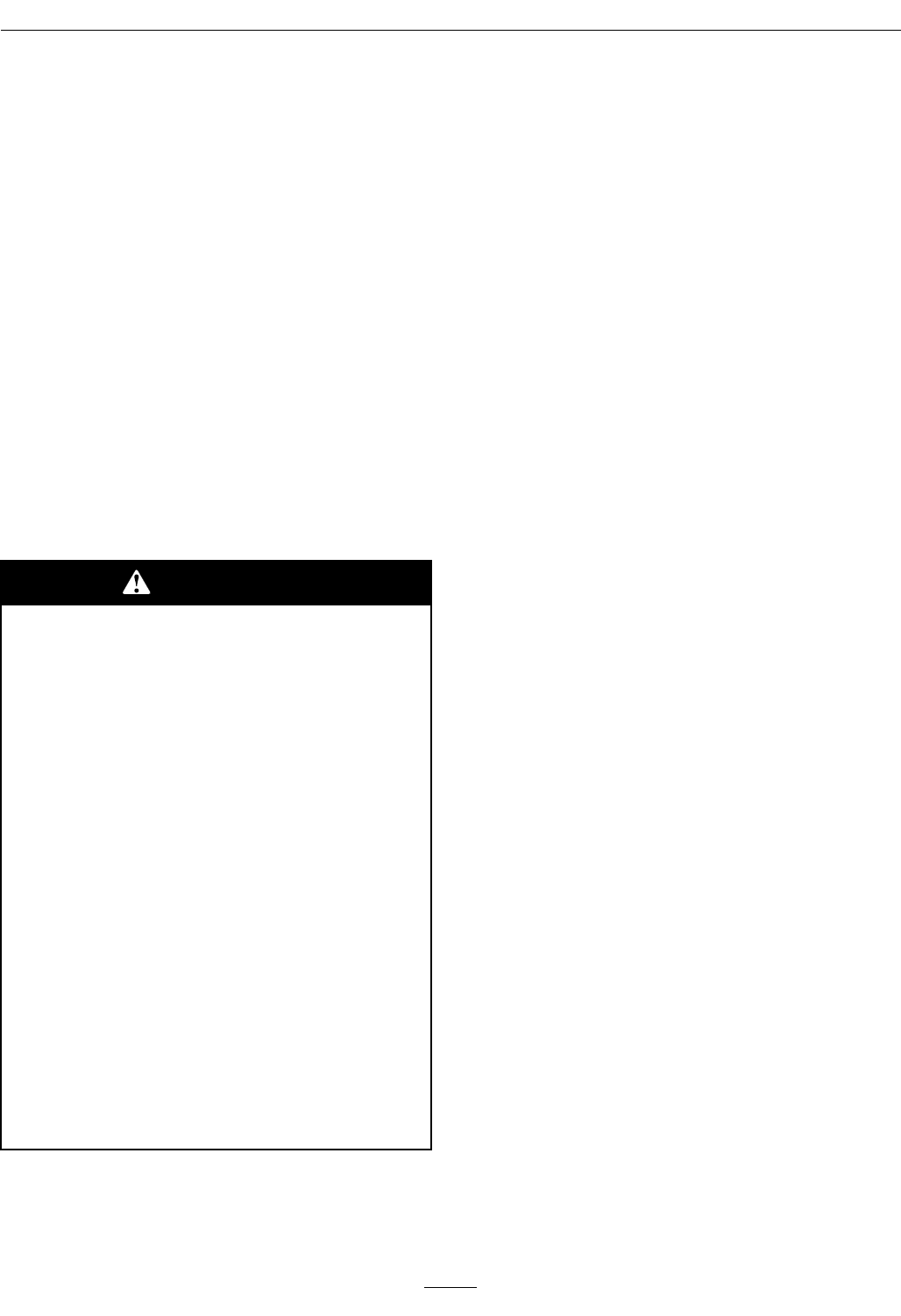
Safety
them. Only replace blades. Never straighten or
weld them.
• Keep hands and feet away from moving parts.
If possible, Do Not make adjustments with the
engine running.
• Charge batteries in an open well ventilated area,
away from spark and ames. Unplug charger
before connecting or disconnecting from battery.
Wear protective clothing and use insulated tools.
• Keep all guards, shields and all safety devices in
place and in safe working condition.
• Check all bolts frequently to maintain proper
tightness.
• Frequently check for worn or deteriorating
components that could create a hazard.
• All replacement parts must be the same as
or equivalent to the parts supplied as original
equipment.
WARNING
Hydraulic uid escaping under pressure
can penetrate skin and cause injury. Fluid
accidentally injected into the skin must be
surgically removed within a few hours by a
doctor familiar with this form of injury or
gangrene may result.
• Make sure all hydraulic uid hoses
and lines are in good condition and
all hydraulic connections and ttings
are tight before applying pressure to
hydraulic system.
• Keep body and hands away from pinhole
leaks or nozzles that eject high pressure
hydraulic uid.
• Use cardboard or paper, not your hands,
to nd hydraulic leaks.
• Safely relieve all pressure in the hydraulic
system by placing the motion control
levers in neutral and shutting off the
engine before performing any work on
the hydraulic system.
9



